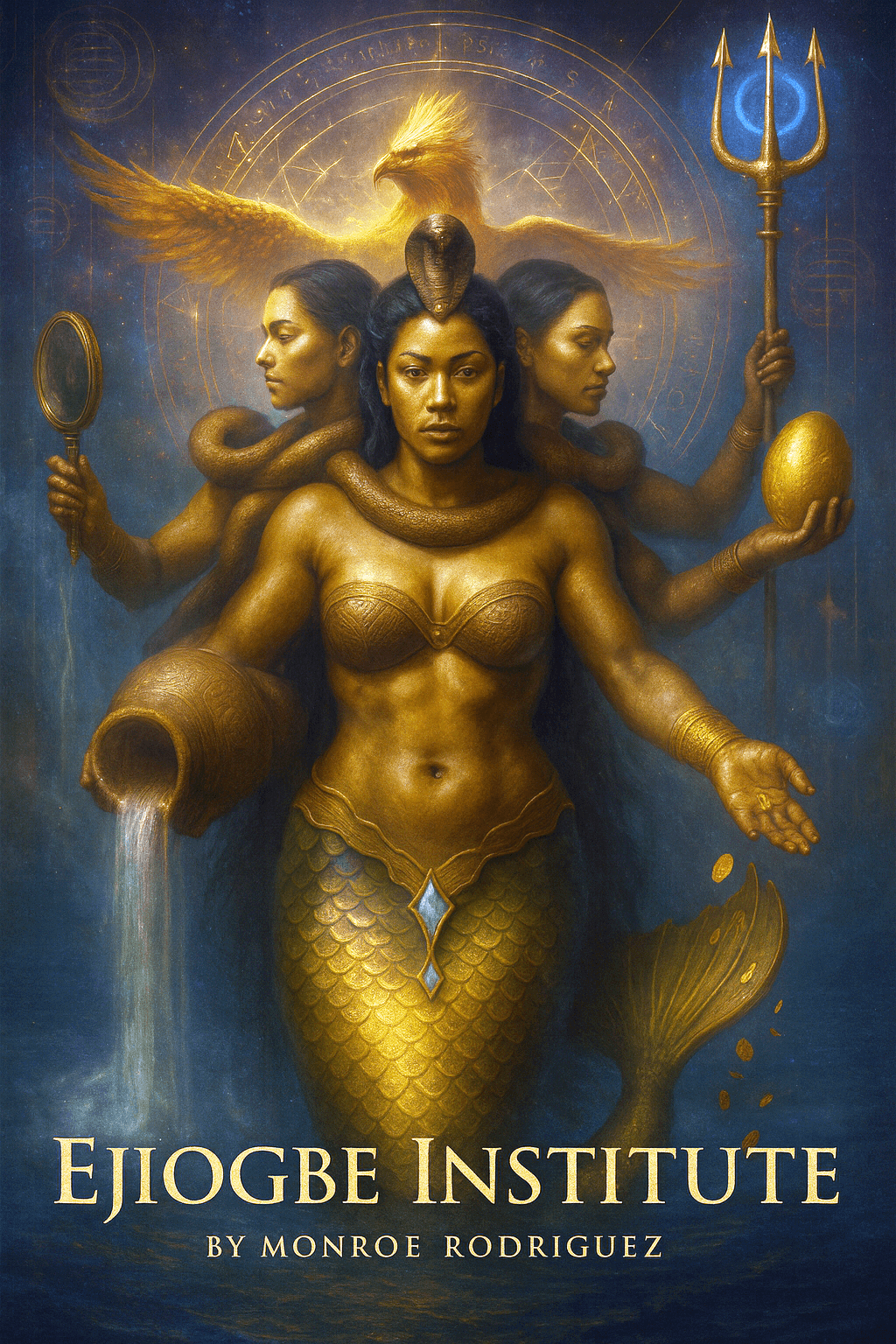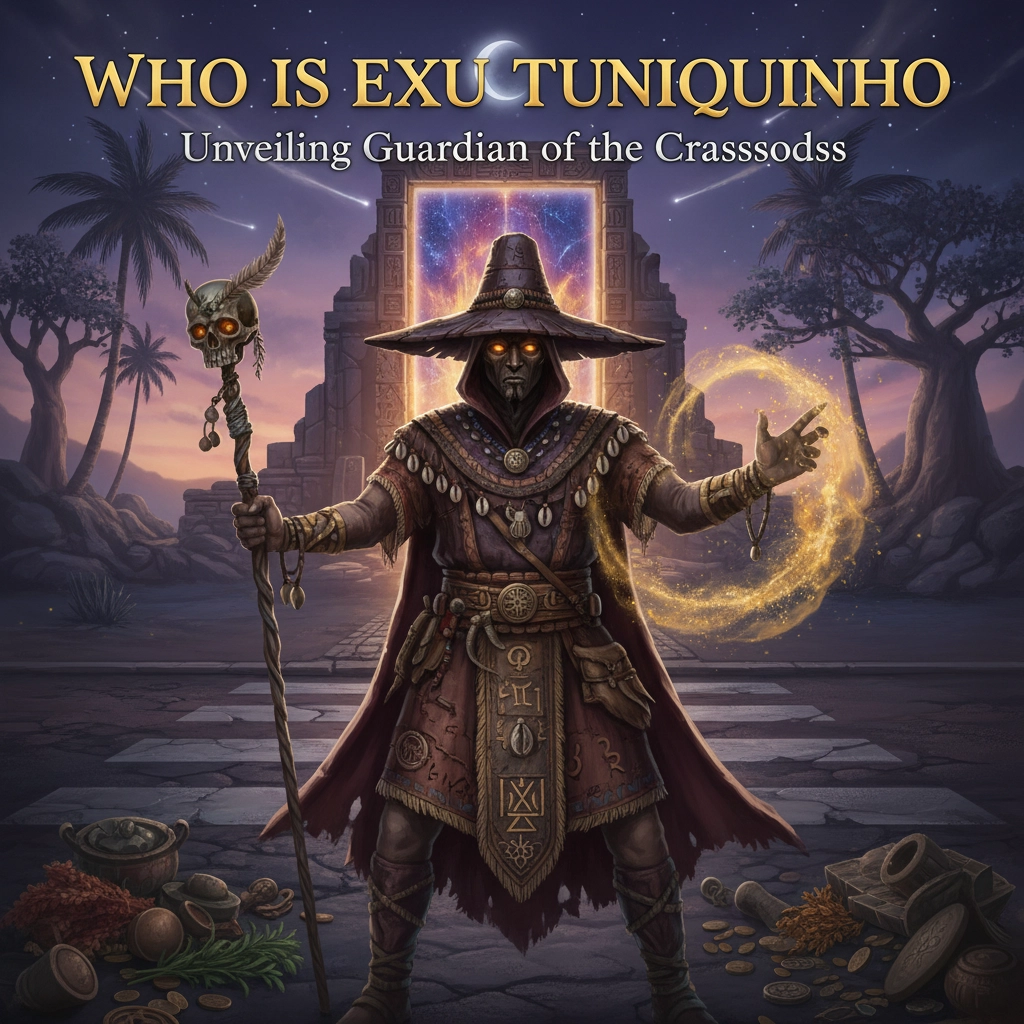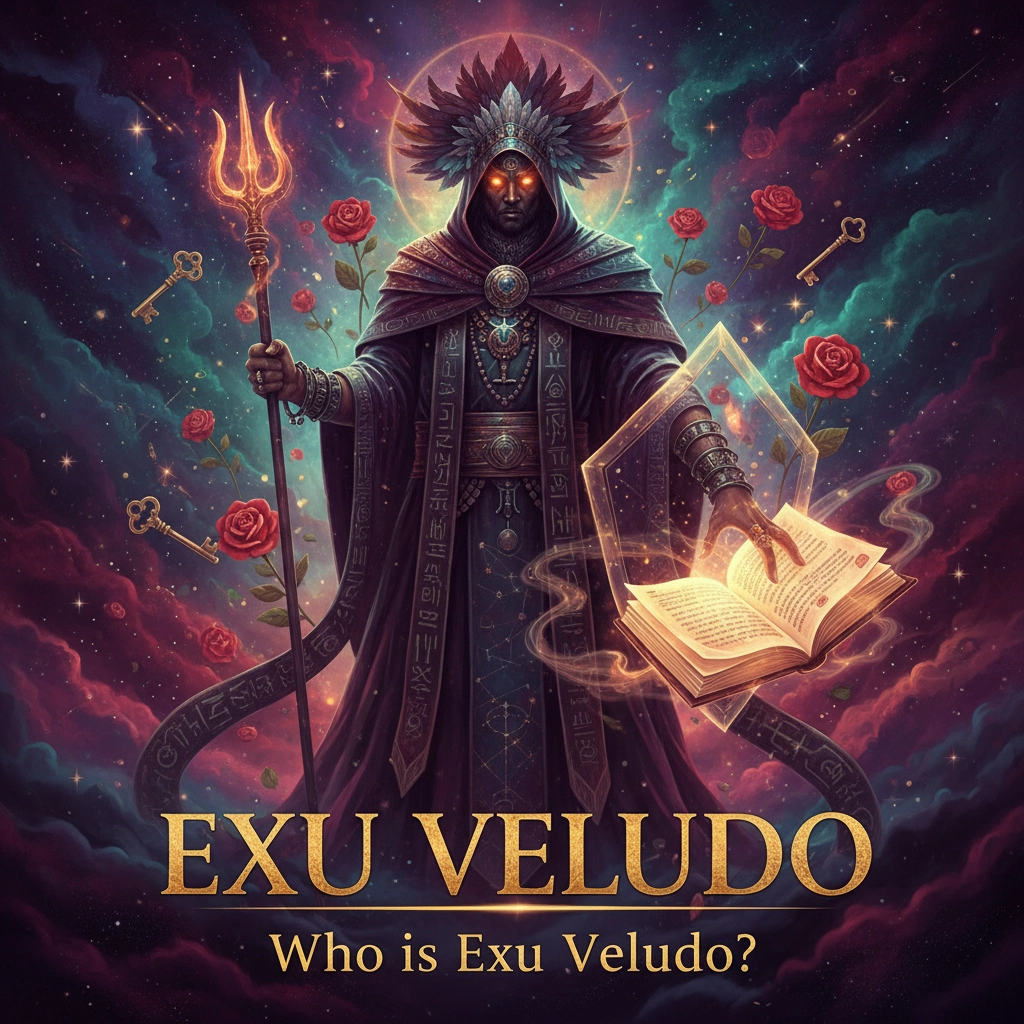Have you ever wondered how the rhythmic heartbeat of Brazil's spiritual traditions continues to pulse through modern practitioners? In the vibrant tapestry of Afro-Brazilian spirituality, some figures emerge not just as entities to be revered, but as living embodiments of cultural resilience and artistic expression. Meet Exu Tuniquinho: a spiritual force whose very essence beats with the drums of the morro and whose story challenges everything you thought you knew about the intersection of music, spirituality, and community power.
The Drummer Who Became Legend
Picture this: the sun-drenched hills of Brazil, where community gatherings pulse with infectious rhythms that seem to connect earth to sky. Here, in these sacred spaces known as morros, lived a figure whose dedication to his craft would transcend the physical realm entirely. Exu Tuniquinho wasn't just any drummer: he was the drummer, the one whose hands knew no rest, whose rhythms spoke to something deeper than entertainment.
The sacred chants tell us that "Seu Tuniquinho no morro foi batuqueiro": His Tuniquinho on the hill was a drummer. But this simple description carries profound weight in Afro-Brazilian spiritual traditions. To be a batuqueiro is to be a keeper of cultural memory, a bridge between the ancestral and the contemporary, a vessel through which the very soul of community expression flows.
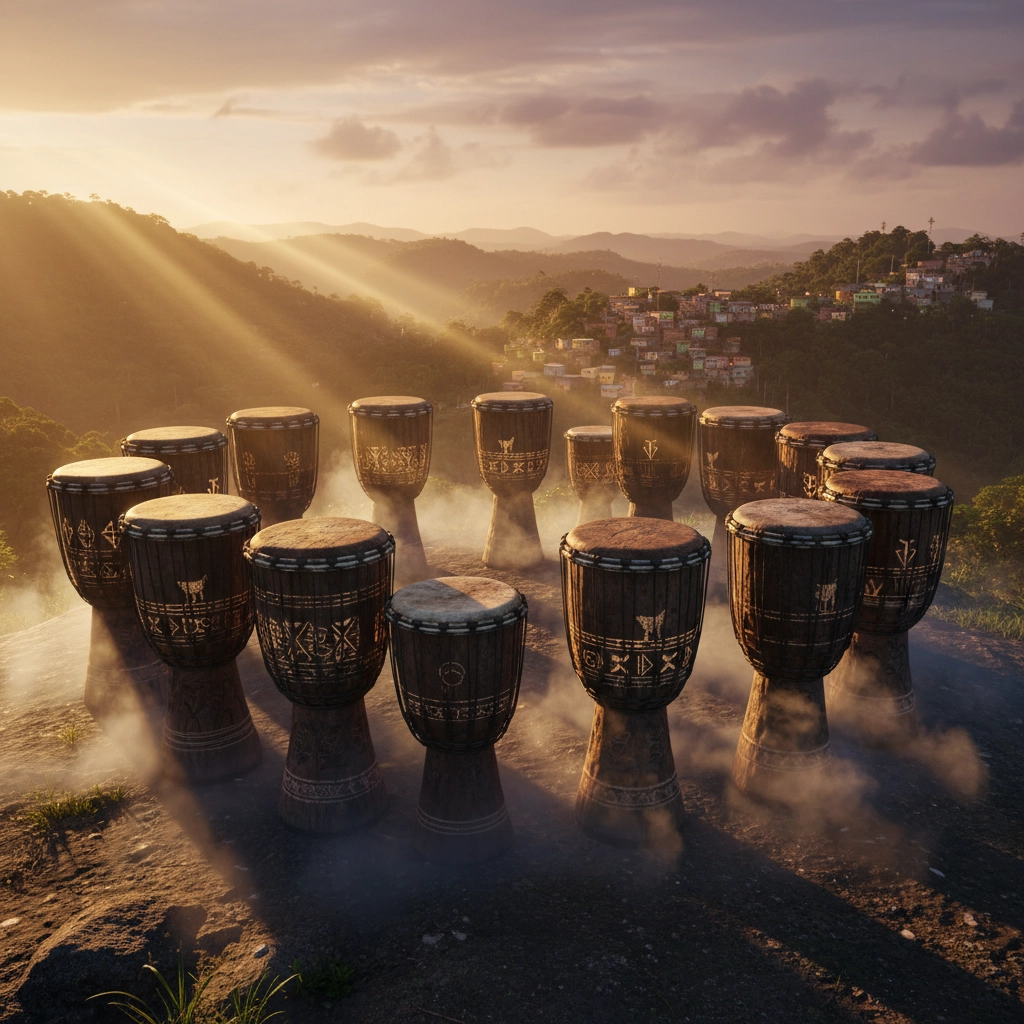
Where Music Meets the Sacred
What transforms a skilled musician into a revered spiritual entity? The answer lies in understanding the revolutionary role that rhythm plays in Quimbanda and related Afro-Brazilian practices. We're not talking about background music here: we're discussing sacred technology that opens doorways between worlds.
Exu Tuniquinho represents something beautifully subversive: the idea that artistic dedication can become spiritual transcendence. His ponto, the sacred chant that honors his essence, declares with unwavering confidence: "Quem firma no Tuniquinho balança mas não cai": Whoever holds firm to Tuniquinho sways but does not fall.
Think about the profound wisdom embedded in these words. In a world that constantly tries to knock us off balance, here's a spiritual force offering not rigid stability, but flexible resilience. You may sway: life will move you, challenge you, test your footing: but you will not fall. The drums have taught him, and through him teach us, that true strength lies in the ability to move with life's rhythms while maintaining your core.
The Living Heartbeat of Quimbanda
Many people mistakenly view Quimbanda as simply another religious practice, but we're witnessing something far more revolutionary. This is a spiritual system that refuses to separate the sacred from the everyday, that finds the divine in the drummer's calloused hands and the community's shared breath as they sing together under starlit skies.
Exu Tuniquinho occupies a special place within this rich tradition. As one of the many Exus honored in Quimbanda practice, he represents the democratizing power of spiritual connection. Where once spiritual authority might have been restricted to formal priesthood, Quimbanda recognizes that the sacred can manifest through any devoted practitioner: even a hill-dwelling drummer whose only qualification was an unshakeable commitment to his craft.
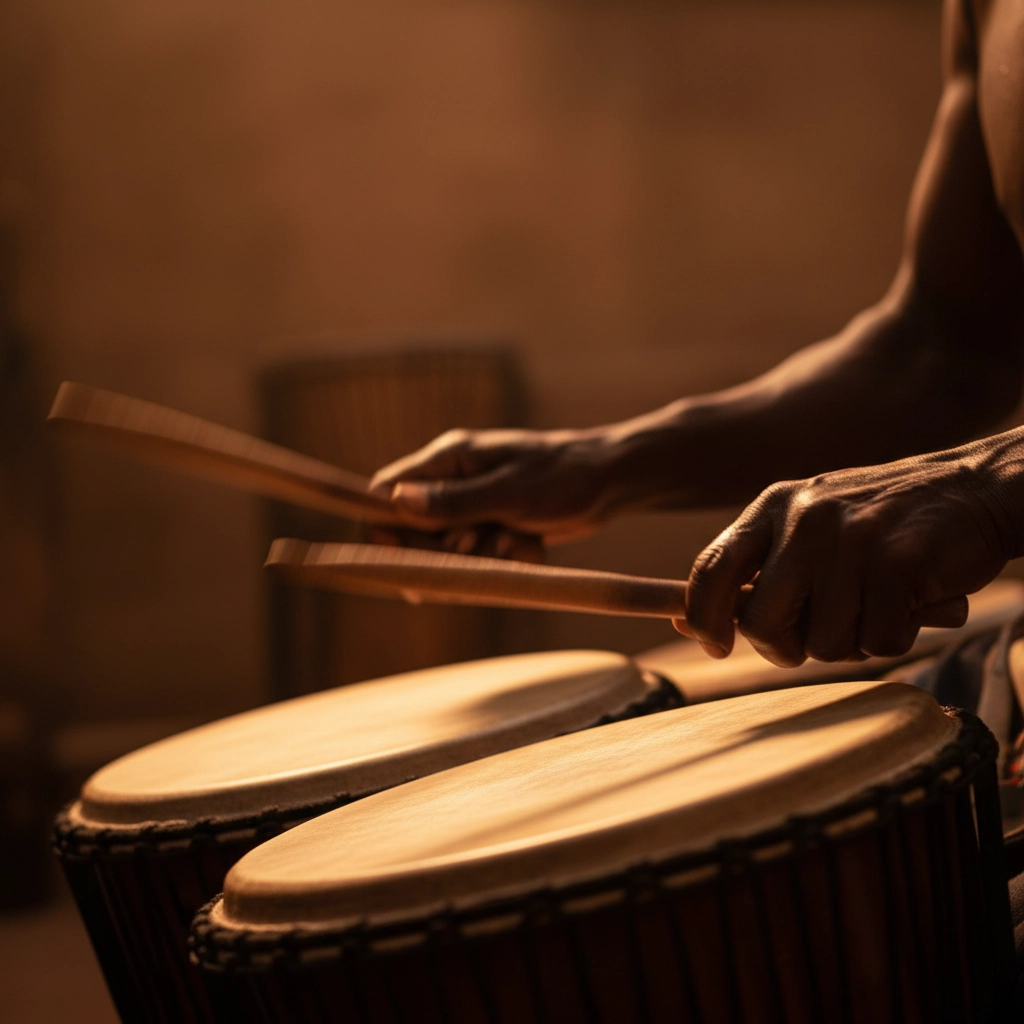
The Ponto: Sacred Technology in Action
The ponto dedicated to Exu Tuniquinho isn't just a song: it's spiritual technology encoded in rhythm and verse. When practitioners gather to honor him, they're not merely performing; they're activating a connection that transcends time and space. The ponto serves as both invitation and affirmation, calling forth Tuniquinho's energy while simultaneously strengthening the spiritual resolve of those who chant his name.
J.B. de Carvalho's composition honoring Exu Tuniquinho has become a living bridge between contemporary practitioners and ancestral wisdom. This isn't cultural preservation in the dusty, museum sense: this is tradition breathing unprecedented life into modern spiritual practice.
Consider how revolutionary this really is: a drummer from the hills, through the sheer force of his dedication and the community's recognition of his spiritual significance, becomes immortalized in sacred song. His story doesn't end with physical death; it transforms, evolves, continues to inspire and guide new generations of practitioners.
Resilience in Every Beat
What can Exu Tuniquinho teach us about navigating our own challenges? His message resonates with particular power in our current moment of global uncertainty. The hill-dwelling drummer who "balança mas não cai" offers a masterclass in authentic resilience.
Unlike the rigid "positive thinking" culture that dominates much of contemporary wellness discourse, Tuniquinho's wisdom acknowledges that we will be moved, shaken, tested. The goal isn't to become immovable: it's to develop the spiritual flexibility that allows us to dance with difficulty rather than be destroyed by it.
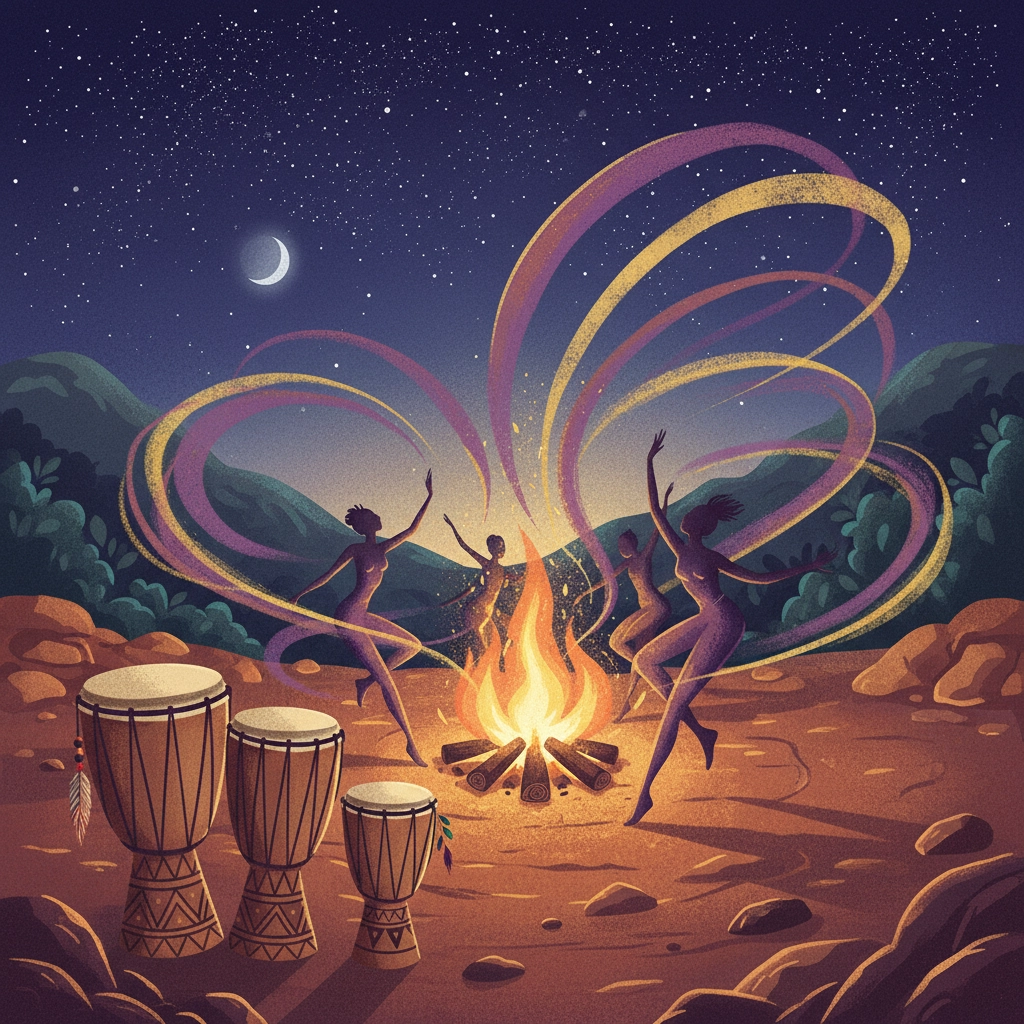
Modern Practitioners, Ancient Wisdom
Today's Quimbanda practitioners don't worship Exu Tuniquinho as a distant deity. They engage with his energy as a living force, accessible through ritual, meditation, and the simple act of approaching life with a drummer's dedication. This isn't about blind faith: it's about recognizing patterns of power that have sustained communities through centuries of challenge.
The beauty of Tuniquinho's influence lies in its accessibility. You don't need special training or expensive equipment to connect with his energy. The rhythms that called to him are still available to anyone willing to listen. The hills where he drummed still echo with possibility for those brave enough to climb them, literally or metaphorically.
Modern practitioners often report that working with Exu Tuniquinho's energy helps them develop what we might call "creative resilience": the ability to find innovative solutions to life's challenges while remaining rooted in authentic spiritual practice.
The Community That Drums Together
Perhaps the most revolutionary aspect of Exu Tuniquinho's legacy is how it demonstrates the collective nature of spiritual power. His story isn't one of isolated individual achievement: it's about a community that recognized, celebrated, and elevated one of its own to spiritual significance.
This community-centered approach to spirituality offers a powerful alternative to the individualistic spiritual marketplace that dominates much of contemporary wellness culture. Instead of purchasing enlightenment, practitioners participate in its creation. Instead of consuming spiritual content, they become active contributors to an ongoing tradition.
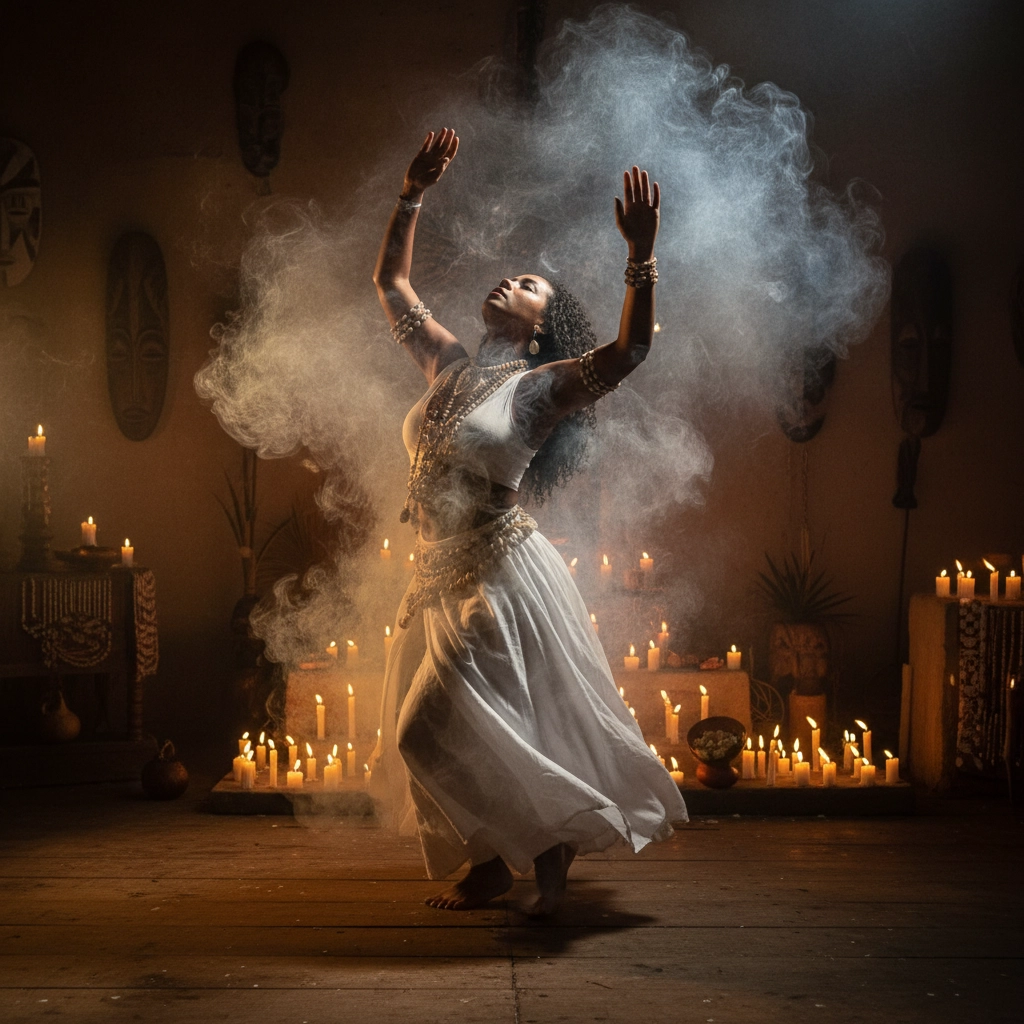
Where Rhythm Meets Revolution
The story of Exu Tuniquinho challenges us to reconsider our assumptions about spiritual authority, artistic dedication, and community power. Here was someone who achieved spiritual significance not through formal religious training or inherited privilege, but through unwavering commitment to his craft and his community's recognition of the sacred in his work.
This democratization of spiritual power represents a quiet revolution that continues to unfold in contemporary practice. When practitioners honor Exu Tuniquinho, they're not just connecting with an individual spiritual entity: they're affirming a vision of spirituality that finds the divine in dedication, the sacred in service, the eternal in authentic expression.
The Drums Still Call
As we navigate our own hills: metaphorical and literal: Exu Tuniquinho's example reminds us that spiritual significance often emerges not from grand gestures but from consistent devotion to what calls our hearts. His hands never stopped drumming, even when the rest might have seemed more appealing. His rhythms never ceased, even when listeners were few.
In a world that often rewards quick fixes and superficial solutions, Tuniquinho's path offers something more sustainable: the recognition that deep spiritual connection grows from patient cultivation, community recognition, and the courage to keep drumming your unique rhythm even when the world seems deaf to its beauty.
The hills where Tuniquinho drummed continue to echo with possibility. The question isn't whether you're qualified to add your voice to the chorus: it's whether you're brave enough to begin, dedicated enough to continue, and wise enough to let your individual rhythm strengthen the community's song.
His ponto promises that those who hold firm will sway but not fall. The drums are still calling. The community is still gathering. Your rhythm is still needed.
The revolution continues, one beat at a time.
